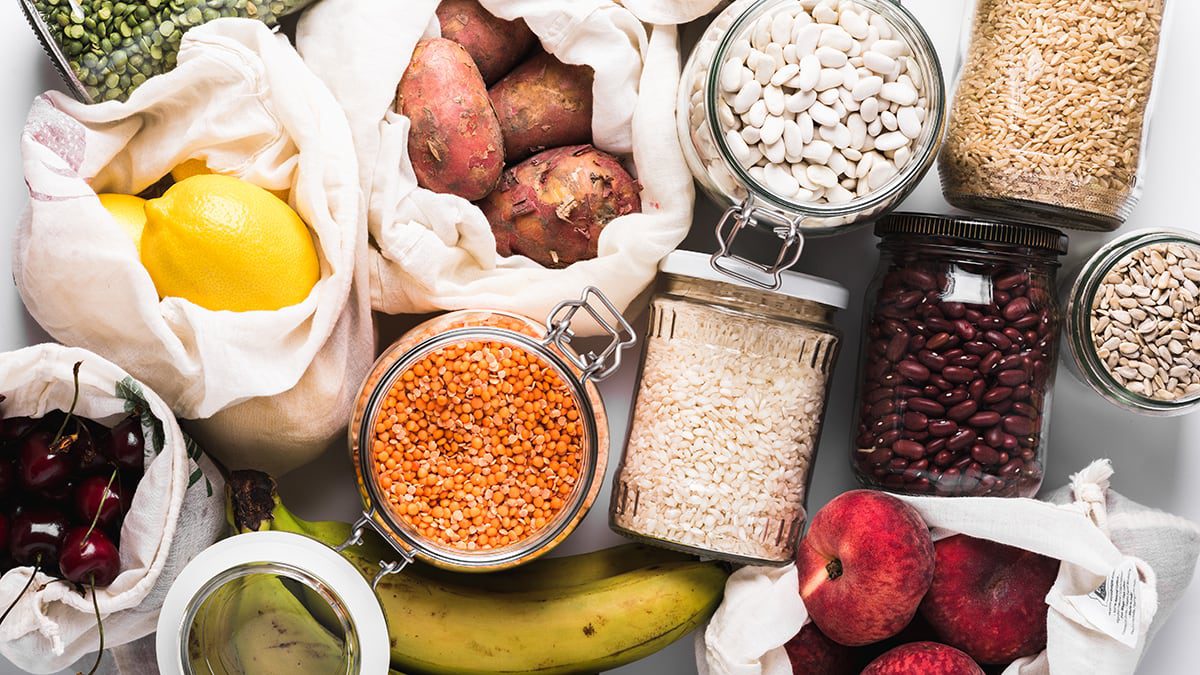What a Neuroscientist Wants You to Know About the ‘Gut-Brain Axis’

When you think about mental health, your mind probably turns to the brain. But what if your gut – that long, winding organ we often reduce to just “digestion” – plays a pivotal role in how you think, feel and respond to the world around you? It’s here that neuroscience is now uncovering a remarkable truth: that the brain and the gut are in constant conversation, shaping mood, stress resilience, and even risk for neurological conditions. This dialogue is known as the gut-brain axis – and it might just change how you look at food, stress, and your health altogether.
To unpack what science really tells us, I spoke to Dr. Caitlin Hall, neuroscientist and dietitian, about why this connection matters, how to nourish it, and the myths we should leave behind.
Constant Conversation
At its simplest, the gut-brain axis is a line of communication between two seemingly distant organs. But as Dr. Hall explains, it’s far more complex than just a single pathway.
“The gut-brain axis is the two-way communication system between our gut and our brain,” she says. “It’s not just one single pathway but a whole network of overlapping ones, involving the vagus nerve, hormones, the immune system, and the trillions of microbes living in our gut.”
These microbes, she continues, are especially important. “Our gut microbes produce all sorts of signalling molecules, like short-chain fatty acids (SCFAs) and neurotransmitters, that can influence how our brain functions and how we feel. At the same time, the brain can send signals back to the gut, affecting things like digestion, gut motility, and even the composition of the bacteria that thrive.”
In short, the gut and brain are constantly “in conversation”. And according to Dr. Hall, that dialogue has “a big impact on things like mood, stress, cognition, and overall mental health.”

Brain Food
If the gut and brain are speaking to one another, what we eat becomes part of that conversation. “What we eat plays a surprisingly big role in how our brain functions and how we feel,” Dr. Hall says.
One of the clearest examples is fibre. “Unlike sugar or protein, fibre isn’t digested by us – it’s digested by the microbes in our gut. When these microbes break down fibre, they produce beneficial compounds called SCFAs.” These compounds, she explains, do more than keep the gut happy. “They help reduce inflammation, keep the gut lining healthy, and can even signal directly to the brain through the bloodstream and the vagus nerve.”
In other words, a fibre-rich diet effectively “fuels” your microbes to produce brain-supporting compounds. “When we eat a diet rich in plants containing prebiotic fibre, from wholegrains, fruits, vegetables, nuts and seeds,” Dr. Hall says, “we’re essentially fuelling the gut microbes to produce more of these ‘feel-good’ compounds. Over time, this can support not just gut health, but also mental clarity, resilience to stress, and mood.”
So, which foods matter most? According to Dr. Hall, fibre is the standout macronutrient. “When it comes to ‘superfoods’ for the gut microbiome, prebiotic fibre is the real winner here. It’s found in foods like onions, garlic, leeks, bananas, oats and legumes.”
Healthy fats also play a role, including “walnuts and flaxseeds,” she says, “as they support brain cell membranes and help reduce inflammation that can affect both gut and brain.”
Here, variety is just as important as fibre or fats. “The more diverse your diet, the more diverse your microbiome tends to be,” Dr. Hall adds, “and a diverse microbiome is linked to resilience, stability and a steady supply of beneficial metabolites.”
Stress: The Myths and Misconceptions
Food is vital – but it isn’t everything. Stress, too, has a powerful effect on the gut-brain axis. “Stress can have a huge direct effect on the gut,” Dr. Hall explains. “When we’re stressed, the body releases hormones like cortisol, which can change gut motility, increase inflammation, and even alter the balance of our gut microbes.”
Chronic stress, she warns, is particularly harmful. “It can reduce beneficial bacteria and make the gut lining more permeable, sometimes called ‘leaky gut,’ which can trigger further immune responses. Because the gut and brain are in constant communication, these changes can then feed back to affect mood, sleep, and cognition, creating a kind of stress-gut loop.”
While probiotics are often marketed as the solution, Dr. Hall urges caution. “When people hear ‘gut-brain axis’ they think probiotics. Many people assume probiotics automatically improve gut and brain health, but the truth is we’re still far from having reliable, proven probiotics for the gut-brain axis.”
Their effects, she explains, are highly variable. “The effects of probiotics depend heavily on the specific strains, the dose, and the person’s existing gut microbiome. Some strains can support immune health, diarrhoea, and gut infection, but most have little effect on the gut and brain.” Her conclusion? “General ‘one-size-fits-all’ probiotics aren’t a magic fix – focusing on a varied, fibre-rich diet is often the most effective way to support both gut and brain health.”
Another common misconception is serotonin. “About 90% of the body’s serotonin is indeed produced in the gut,” Dr. Hall says, “but most of it stays there to regulate digestion and gut function – it doesn’t all travel to the brain to influence mood in the way people often assume.”
She also cautions against restrictive eating in the name of gut health. “One of the best things you can do for your gut and brain is to eat a wide variety of fibre-rich plant foods, alongside balanced sources of protein and healthy fats. Restriction usually reduces microbial diversity, and diversity is exactly what the gut thrives on.”
Looking Ahead
The field of gut-brain research is young, but expanding rapidly. “The future is really exciting because we’re only just scratching the surface of how the gut and brain communicate,” Dr. Hall says.
She points to her recent work as an example. “We’re about to run one of the largest gut-brain axis studies yet, focusing on people with mild to moderate stress levels. Studies like this will help us understand which dietary interventions, prebiotic fibres, and other strategies can actually influence mood, cognition, and stress resilience in real people.”
Future research, she explains, will likely move into more sophisticated territory. “Over the next few years, research will likely move from simple intervention studies to those including multimodal techniques like functional magnetic resonance imaging (fMRI), gut microbiome testing, blood testing, and more.”
What about results in the here and now? “Some studies suggest that changes can occur quite rapidly – but most of these studies have been performed in preclinical (animal) studies,” she notes.
“The other important thing to remember is that we’re still in the really early stages of this research, so while some researchers have seen benefits after 4-8 weeks, we need to replicate these findings in larger populations to confirm these effects.” And while supplements receive mixed opinions, Dr. Hall highlights one with strong evidence. “Prebiotic fibre is the one to prioritise, ideally alongside a varied, plant-rich diet,” she says. “Unlike general probiotics, which may or may not work depending on the strain and individual microbiome, prebiotic fibres have a more consistent and well-understood effect.”



















